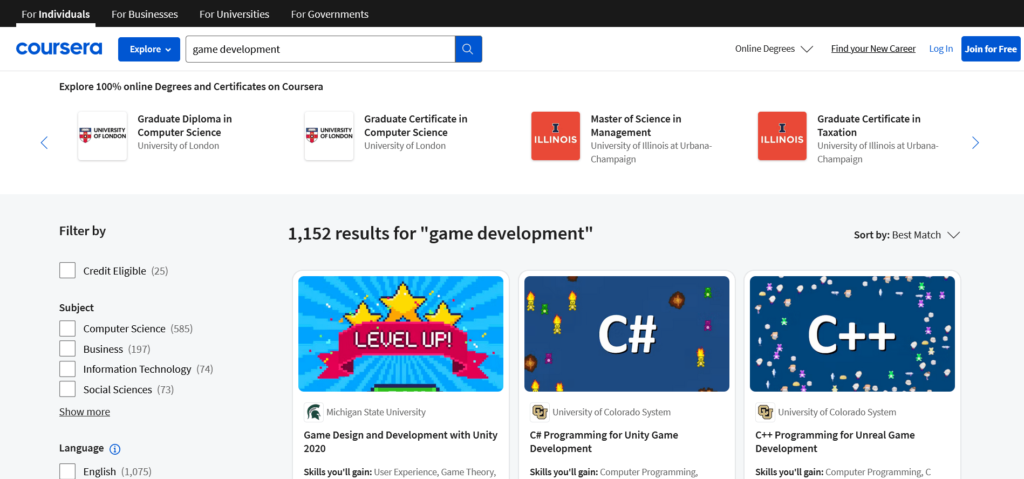Introduction
Welcome to our comprehensive exploration of the intricate world of video game quality assurance (QA)! In this article, we delve deep into the myriad roles encompassed within the realm of video game quality assurance, shedding light on the essential functions and responsibilities each position entails. Whether you’re a seasoned industry expert or an aspiring newcomer, understanding the diverse landscape of video game quality assurance (QA) is crucial for success in the ever-evolving gaming industry. Join us as we navigate through the intricacies of video game quality assurance roles, uncovering the critical contributions they make to ensuring the highest standards of gaming excellence.
Quality Assurance Tester (QA Tester)
At the forefront of video game QA, QA Testers are the hands-on evaluators, rigorously testing games to identify bugs, glitches, and other issues. Their responsibilities include executing test cases, providing detailed issue reports, and collaborating closely with developers to ensure a smooth resolution process.
Key Responsibilities:
- Execute test cases to identify bugs and issues.
- Document and report issues encountered during testing.
- Collaborate with developers to reproduce and understand reported issues.
Compatibility Tester
As the gaming industry spans various platforms, Compatibility Testers focus on ensuring games run seamlessly across different devices, operating systems, and hardware configurations. Their role is vital in guaranteeing a consistent and enjoyable gaming experience for players across diverse platforms.
Key Responsibilities:
- Test games on various platforms for compatibility.
- Identify and report issues related to hardware and software compatibility.
- Collaborate with developers to implement fixes for compatibility problems.
Localization Tester
In the era of global gaming, Localization Testers ensure that games are culturally and linguistically adapted for diverse audiences. They meticulously test translations, cultural references, and regional preferences to enhance the gaming experience for players worldwide.
Key Responsibilities:
- Verify accuracy and appropriateness of translated content.
- Test games in different languages and regions.
- Provide feedback on cultural sensitivity and relevance.
User Experience (UX) Tester
User satisfaction is paramount, and UX Testers focus on evaluating the overall feel and engagement of a game. They assess user interfaces, controls, and overall gaming experience, providing valuable insights to enhance player immersion and satisfaction.
Key Responsibilities:
- Evaluate user interfaces for intuitiveness and clarity.
- Assess controls and responsiveness for an optimal gaming experience.
- Provide feedback on overall user satisfaction and engagement.
Performance Tester
Optimizing a game’s performance is crucial for player satisfaction. Performance Testers evaluate frame rates, loading times, and overall system performance to ensure a smooth and enjoyable gaming experience on various hardware configurations.
Key Responsibilities:
- Conduct stress testing to evaluate system performance under extreme conditions.
- Monitor frame rates and optimize performance for different hardware configurations.
- Collaborate with developers to enhance overall game optimization.
Regression Tester
As games undergo updates and changes, Regression Testers play a crucial role in ensuring that new features or fixes do not introduce new issues or impact existing functionalities negatively. They perform comprehensive tests to maintain the overall stability of the game.
Key Responsibilities:
- Conduct regression testing after updates or changes to the game.
- Ensure that new features or fixes do not introduce new issues.
- Collaborate with developers to address any regression-related concerns.
Automation Tester
Automation Testers utilize scripting and automation tools to streamline repetitive testing tasks, allowing for faster and more efficient QA processes. They play a vital role in enhancing testing coverage and identifying potential issues early in the development cycle.
Key Responsibilities:
- Develop and maintain automated test scripts.
- Execute automated tests to identify issues quickly.
- Collaborate with developers to integrate automated testing into the development pipeline.
Security Tester
In an era of online gaming and interconnected systems, Security Testers focus on identifying and mitigating potential security risks and vulnerabilities within a game. They play a critical role in safeguarding player data and ensuring a secure gaming environment.
Key Responsibilities:
- Conduct security assessments and penetration testing.
- Identify and report potential security vulnerabilities.
- Collaborate with developers to implement security measures and best practices.
Lead QA Tester
A Lead QA Tester takes on a leadership role, overseeing the QA team and coordinating testing efforts. They play a crucial role in test planning, strategy development, and ensuring effective communication between QA and development teams.
Key Responsibilities:
- Lead and coordinate the activities of the QA team.
- Develop test plans and testing strategies.
- Facilitate communication between QA and development teams.
QA Manager/Director
At the helm of the QA department, QA Managers/Directors are responsible for the overall quality assurance strategy, team management, and ensuring that QA processes align with the overarching goals of the game development company.
Key Responsibilities:
- Develop and implement QA strategies and processes.
- Manage and lead the QA team.
- Collaborate with other departments to ensure overall product quality.

Top Online Education Platforms to Mastering Video Game Quality Assurance (QA)
In today’s digital age, the world of video game development is booming, creating a high demand for skilled professionals in Quality Assurance (QA). Whether you’re a seasoned game developer looking to enhance your skills or an aspiring enthusiast eager to dive into the intricacies of QA, online education courses offer a convenient and flexible way to learn. In this article, we’ll explore the top platforms where you can embark on your journey to mastering Video Game Quality Assurance.
Udemy

Udemy is a popular online learning platform that offers a wide range of courses on video game QA. From beginner-level introductions to advanced topics, Udemy features courses taught by industry experts covering various aspects of QA testing, bug tracking, game optimization, and more. Courses are self-paced, allowing you to learn at your own convenience.
Coursera

Coursera partners with leading universities and organizations to offer high-quality online courses on a diverse range of topics, including video game QA. Through Coursera, you can enroll in courses that cover fundamental QA principles, software testing methodologies, and practical techniques for ensuring game quality. Certificates of completion are provided upon finishing the courses.
LinkedIn Learning

Formerly known as Lynda.com, LinkedIn Learning is a valuable resource for professionals seeking to enhance their skills, including those in the gaming industry. LinkedIn Learning offers courses on video game QA, covering topics such as test planning, execution, defect management, and quality assurance strategies tailored specifically for game development.
Pluralsight
Pluralsight is an online learning platform that offers a vast library of courses on technology-related topics, including video game QA. Through Pluralsight, you can access courses that delve into the fundamentals of QA testing, automation techniques, performance testing, and other relevant topics essential for ensuring the quality of video games.
Game Institute
Game Institute is an online platform dedicated to providing education and training for aspiring game developers and professionals. They offer courses specifically focused on video game QA, covering topics such as testing methodologies, bug tracking systems, and quality assurance best practices tailored for the gaming industry.
Skillshare

Skillshare is an online learning community that offers a variety of courses on creative and technical subjects, including video game QA. Through Skillshare, you can explore courses that provide insights into the role of QA testers, software testing techniques, and practical skills for identifying and resolving bugs in video games.
Game Development Institute (GDI)
GDI offers specialized courses and training programs for individuals interested in pursuing careers in the gaming industry. Their curriculum includes courses on video game QA, covering essential concepts such as test planning, execution, documentation, and quality assurance strategies specific to game development.
FutureLearn
FutureLearn is an online learning platform that partners with leading universities and institutions to offer courses on various subjects, including video game QA. Through FutureLearn, you can enroll in courses that explore the principles of software testing, quality assurance methodologies, and practical skills for ensuring the quality of video games.
Codecademy

Codecademy is an interactive platform that offers courses on coding and programming languages, including those relevant to video game QA. While not specifically focused on QA, Codecademy provides courses on programming languages commonly used in game development, which are valuable skills for QA professionals looking to enhance their technical capabilities.
Top 10 Questions About Video Game Quality Assurance (QA) Roles
1. What is Quality Assurance (QA) in video game development?
Quality Assurance in video game development refers to the process of systematically testing and evaluating various aspects of a game to ensure its functionality, performance, and overall quality. QA professionals meticulously scrutinize every element of a game, from gameplay mechanics to graphical fidelity, to identify and rectify any issues that may detract from the player experience.
2. What are the key roles in video game QA?
Video game QA encompasses a range of roles, including Quality Assurance Tester (QA Tester), Compatibility Tester, Localization Tester, User Experience (UX) Tester, Performance Tester, among others. Each role is specialized in addressing specific aspects of game quality, such as bug identification, platform compatibility, cultural adaptation, user interface design, and performance optimization.
3. What does a QA Tester do in video game development?
QA Testers are responsible for executing test cases and scenarios to identify bugs, glitches, and other issues within a game. They meticulously playtest the game, document encountered issues, and collaborate with developers to ensure timely resolution. QA Testers play a vital role in ensuring the overall stability and functionality of a game.
4. What is the role of a Compatibility Tester in video game QA?
Compatibility Testers focus on ensuring that a game runs seamlessly across various platforms, hardware configurations, and operating systems. They conduct rigorous testing to identify compatibility issues and work closely with developers to ensure optimal performance across different devices and environments.
5. What does a Localization Tester do in video game QA?
Localization Testers are responsible for ensuring that a game is culturally and linguistically suitable for diverse global audiences. They test games in different languages and regions, verifying the accuracy of translations, cultural references, and regional preferences to enhance the overall gaming experience for international players.
6. What are the responsibilities of a User Experience (UX) Tester in video game QA?
UX Testers focus on evaluating the overall user experience of a game, including interface design, controls, and player engagement. They assess the intuitiveness and clarity of user interfaces, provide feedback on control responsiveness, and evaluate overall user satisfaction to enhance the overall gaming experience.
7. What is the role of a Performance Tester in video game QA?
Performance Testers focus on evaluating the technical performance of a game, including frame rates, loading times, and system optimization. They conduct stress testing to assess performance under various conditions, optimize performance for different hardware configurations, and collaborate with developers to enhance overall game optimization.
8. How do I become a QA Tester in the video game industry?
To become a QA Tester in the video game industry, one typically needs a combination of relevant education, such as a degree in computer science or game development, and practical experience in software testing. Additionally, obtaining certifications in QA methodologies and gaining hands-on experience through internships or entry-level positions can enhance career prospects in video game QA.
9. What skills are required to excel as a QA Tester in video game development?
Essential skills for QA Testers in video game development include strong attention to detail, excellent communication skills, proficiency in software testing methodologies and tools, problem-solving abilities, and a passion for gaming. Additionally, familiarity with game development processes and a keen understanding of player perspectives are valuable assets in this role.
10. What is the future outlook for careers in video game QA?
With the continued growth of the gaming industry and the increasing demand for high-quality gaming experiences, careers in video game QA are expected to remain promising. As technology advances and gaming platforms evolve, QA professionals will play a crucial role in ensuring the success and longevity of video games through comprehensive quality assurance practices.
Navigating the intricate landscape of video game quality assurance (QA) roles can be daunting, but understanding the fundamentals of each role is crucial for aspiring professionals and gaming enthusiasts alike. By addressing the ten most searched questions about video game quality assurance roles, this article aims to provide valuable insights into the diverse facets of QA in video game development, empowering individuals to embark on rewarding careers and contribute to the ever-evolving world of gaming.
Conclusion
In conclusion, the diverse roles within video game quality assurance (QA) are integral to upholding industry standards. From testers to coordinators, each position plays a vital role in ensuring the quality of gaming experiences. Understanding and appreciating the significance of video game quality assurance is essential for the ongoing advancement and innovation within the gaming industry.














